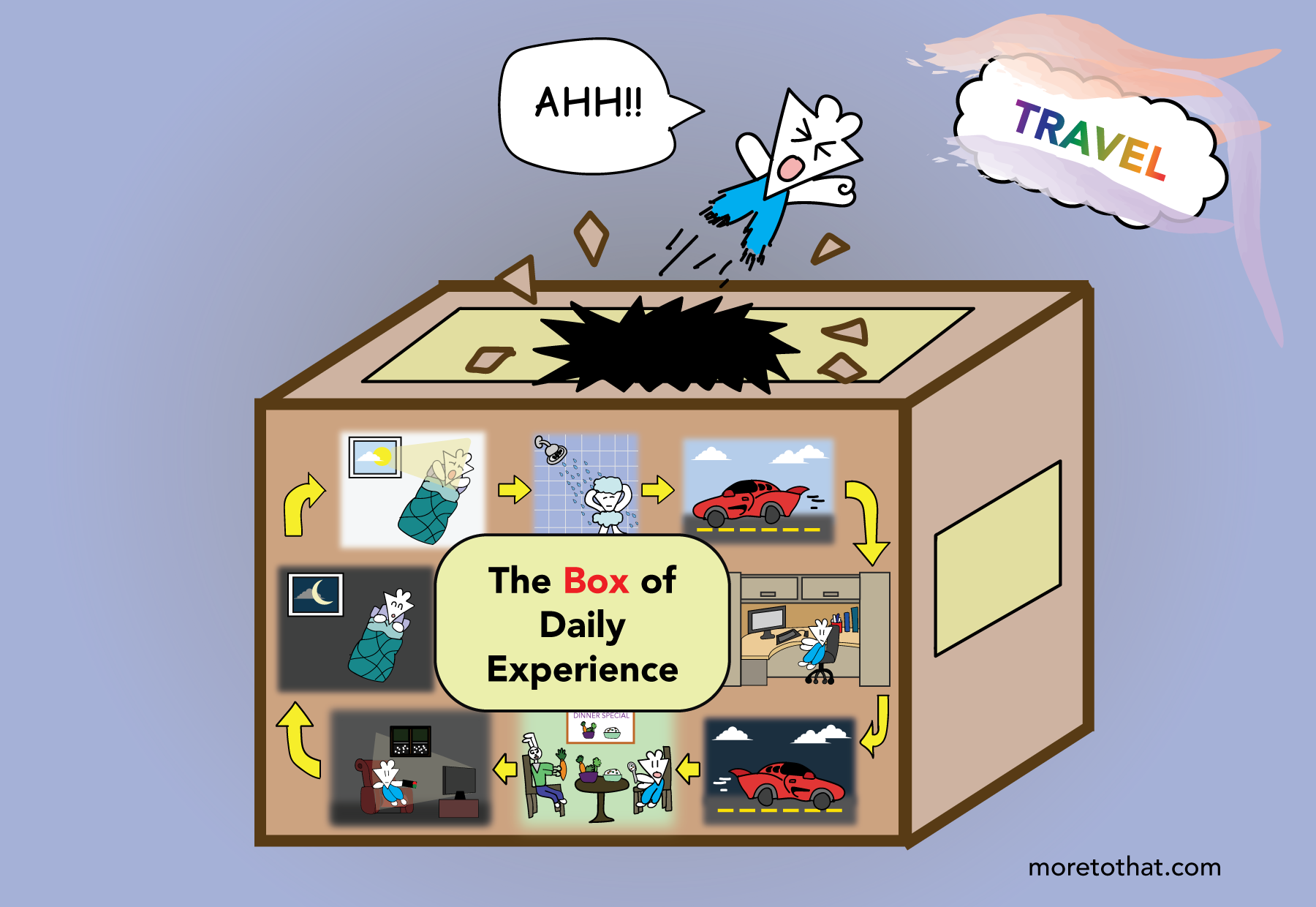Travel Is No Cure for the Mind
InterviewsIt’s just another day… and you’re just doing what you need to do.
You’re getting things done, and the day moves forward in this continuous sequence of checklists, actions, and respites.
But at various moments of your routine, you pause and take a good look at your surroundings.
The scenes of your everyday life. The blur of this all-too-familiar film.

Somewhere more exciting. Somewhere new. Somewhere that can provide experiences that are foreign to you.
The boundaries of our box define our present-day situation, so when we dreamingly gaze toward the prospects of an exciting future, we look outside of it to experience emotions like wonderment, amazement, and inspiration. Our current box is okay and livable, but the world outside of its boundaries is where our hope really resides.
Since much of what we desire lives on the outside (i.e. in the future), we make it the mission of our Box of Daily Experience to make contact with the outer world as much as possible. This touch represents the achievement of our goals and validates our aspirations. We hope that this brief contact will change the architecture of our box, but ultimately, the result is fleeting.
Lorem ipsum dolor sit amet, consectetur adipiscing elit. Integer posuere erat a ante.
#1: Set a Goal
Set a SMART goal (specific, measurable, attainable, relevant, and time based). It will help you structure your thinking. For example, a general goal would be ‘I want to learn how to code.’ A SMART Goal would be ‘I want to build a website with HTML and CSS in the next 6 months.’
- Specific: Going from ‘learn to code’ (general) to ‘build a website using HTML and CSS’ (specific). This should be something which motivates and focuses you. What do you want to achieve? Why?
- Measurable: How can you track your progress toward your goal? Does writing a script count as ‘learning to code’? Think about how you can measure your progress toward your goal. If it isn’t measurable, it’s a lot easier to get unmotivated. Something like ‘build a website using HTML and CSS’ is much easier to track your progress toward.
- Attainable: Think realistically about your own limitations. If you’re used to coming home and watching TV every day for 3 hours, you’re probably not suddenly going to start coming home from work every day and spending 3 hours studying. That’s okay. Don’t plan for very dramatic change – it’s very hard to make that kind of change sustainable.
Instead, think about small changes. Plan for 30 minutes to spend on a new skill. Think about what you’ve accomplished in the past and if this goal is achievable for you. This is also a good time to think about whether or not you are overcommitting. Are you trying to learn Spanish, play the Oboe, and learn a new framework all in the next month? Pick one thing and stay focused on it. That will make it easier to accomplish one goal, and you can always choose a different goal for your next project. - Relevant: Is this goal relevant to what I want? For example, if your goal is to become a software developer, what are the top skills you need to develop? Prioritize learning those skills first. Ask yourself if this the best time for this goal.
- Time-based: The first goal doesn’t set any time limit, which can be hard to motivate yourself to pursue. After all, when you have forever it’s much easier to think ‘I’ll start tomorrow.’ The second goal gives you a hard timeline to accomplish it (6 months).
